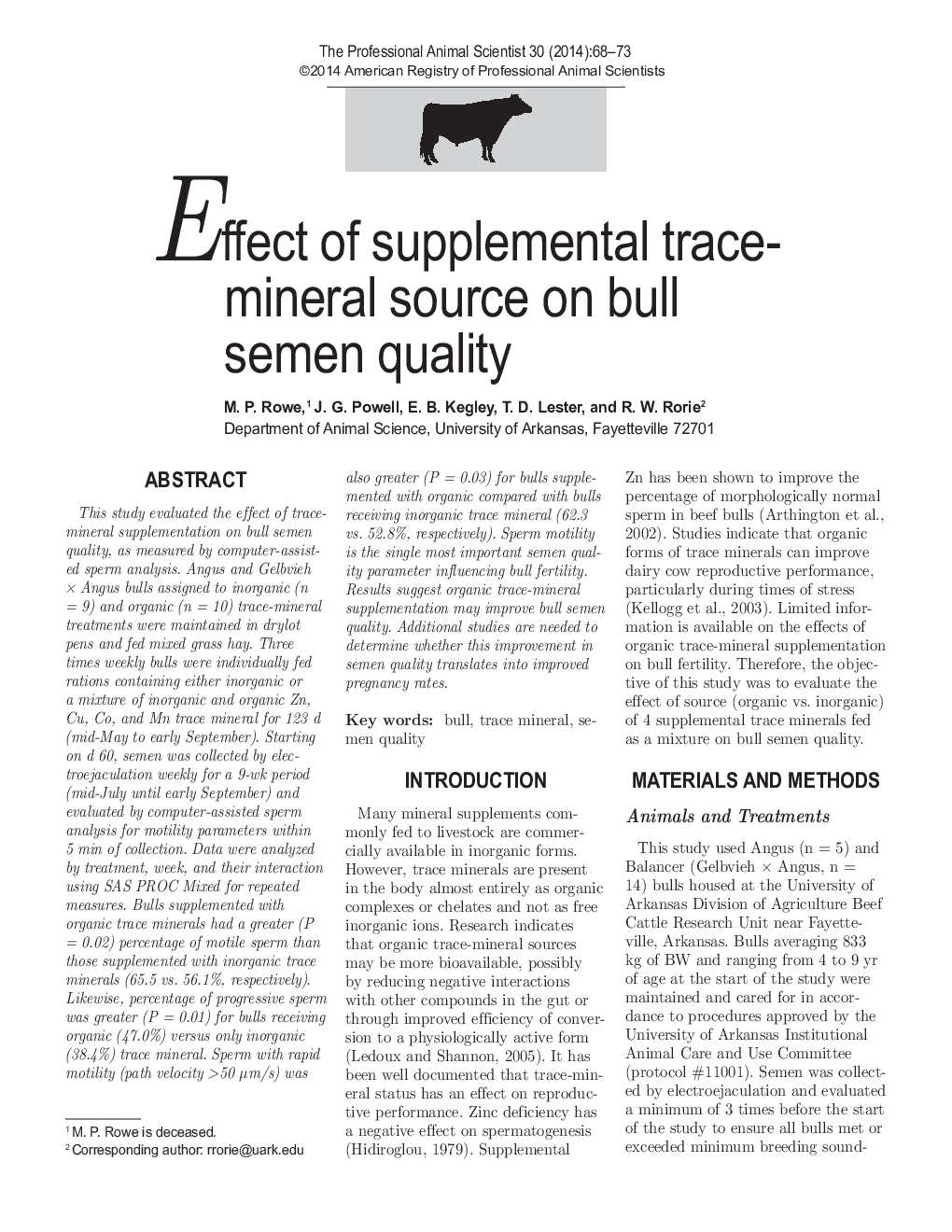| Article ID | Journal | Published Year | Pages | File Type |
|---|---|---|---|---|
| 2453953 | The Professional Animal Scientist | 2014 | 6 Pages |
Abstract
This study evaluated the effect of tracemineral supplementation on bull semen quality, as measured by computer-assisted sperm analysis. Angus and Gelbvieh à Angus bulls assigned to inorganic (n = 9) and organic (n = 10) trace-mineral treatments were maintained in drylot pens and fed mixed grass hay. Three times weekly bulls were individually fed rations containing either inorganic or a mixture of inorganic and organic Zn, Cu, Co, and Mn trace mineral for 123 d (mid-May to early September). Starting on d 60, semen was collected by electroejaculation weekly for a 9-wk period (mid-July until early September) and evaluated by computer-assisted sperm analysis for motility parameters within 5 min of collection. Data were analyzed by treatment, week, and their interaction using SAS PROC Mixed for repeated measures. Bulls supplemented with organic trace minerals had a greater (P = 0.02) percentage of motile sperm than those supplemented with inorganic trace minerals (65.5 vs. 56.1%, respectively). Likewise, percentage of progressive sperm was greater (P = 0.01) for bulls receiving organic (47.0%) versus only inorganic (38.4%) trace mineral. Sperm with rapid motility (path velocity > 50 μm/s) was also greater (P = 0.03) for bulls supplemented with organic compared with bulls receiving inorganic trace mineral (62.3 vs. 52.8%, respectively). Sperm motility is the single most important semen quality parameter influencing bull fertility. Results suggest organic trace-mineral supplementation may improve bull semen quality. Additional studies are needed to determine whether this improvement in semen quality translates into improved pregnancy rates.
Keywords
Related Topics
Life Sciences
Agricultural and Biological Sciences
Animal Science and Zoology
Authors
M.P. Rowe, J.G. Powell, E.B. Kegley, T.D. Lester, R.W. Rorie,
